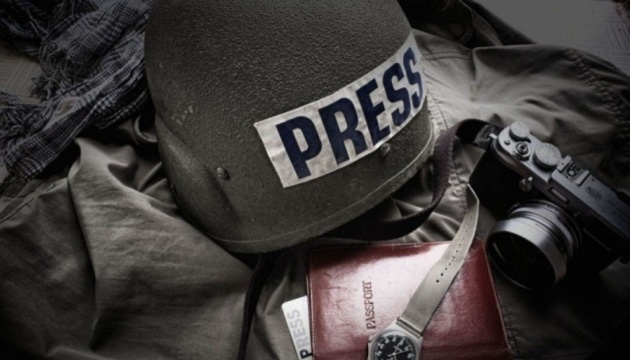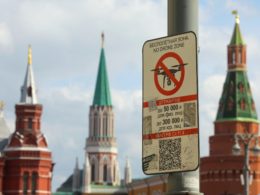The shutdown of the US Agency for International Development has cut off funding for independent media in Ukraine and Russia, putting many outlets at risk of closure, The Washington Post reports.
While USAID is primarily known for its humanitarian and medical work, it also supported journalism.
"Independent media in Russia and Ukraine have been critical of their governments and provide alternative reporting, but much of it relied on US grants," says the report.
Ukraine's independent media—including small regional outlets, investigative websites, and online platforms—have been reeling since the USAID announcement, with some warning they may be just weeks away from staff cuts or complete shutdown.
In Ukraine, many media outlets have struggled to survive since the beginning of Russia’s all-out war. It caused advertising revenues to plummet and forced them to rely on foreign aid. According to Detector Media Nataliia Lygachova, more than 50% of Ukrainian media receiving foreign grants depend on US funding.
“I can say that this is really very important not only for Ukraine but also for the United States. Because it is independent media that ensure, first of all, the existence of democracy and pluralism in Ukraine," she said, adding that she hopes Trump will restore international support programs, as he is fighting government bureaucracy, not suppressing free media.
Detector Media has also warned that the funding freeze could erase three decades of progress and undermine Ukraine’s statehood, democratic values, and pro-Western orientation.
Investigative journalist Denys Bihus also raised concerns, stating that USAID grants finance nearly two-thirds of his organization’s projects.
Anna Babinets, CEO and co-founder of Slidstvo.Info, an independent investigative media outlet based in Kyiv, says that shutting down USAID aid for Ukrainian media means that "Russian money will enter the market. And government propaganda will, of course, intensify."
Members of Ukraine’s "MediaRukh" Media Movement have called on Ukrainian citizens, businesses, and international charitable foundations to provide urgent support to Ukrainian media and media-related civic organizations facing an existential threat due to the loss of institutional funding, according to Detector Media.
"Independent Ukrainian media are one of the key elements that set us apart from Putin’s Russia. They are the voice of our values, our freedom, and our democracy, making Ukrainian society resilient even in the hardest times. Today, independent media need your support more than ever," the statement reads.
A recent survey conducted by Ukraine's Institute of Mass Information shows the majority of media professionals (59.2%) in Ukraine believe that the cessation of media support programs from the US could have catastrophic consequences and lead to the closure or significant reduction in the operations of many independent media outlets.
The immediate responses of media professionals following the suspension of US funding include staff reductions (7.5% of respondents), issues with office rental (9.5% of respondents), a decrease in content production (11% of respondents), salary cuts, and shifts to part-time work (10.5% of respondents).
Only 19% of the surveyed media outlets said that they would continue to operate at the same level as before the stoppage of grant support.
Reporters Without Borders previously said that Ukraine moved up 18 places to 61st out of 180 countries in the World Press Freedom Index, the global press freedom ranking in 2024.
The report notes that many Russian exile media and civil society groups are also heavily reliant on these grants. Most of the funding comes from Washington to ensure that alternative reporting on Russia’s war against Ukraine and domestic politics reaches a Russian audience.
"It seems that this story has affected the lion’s share of Russian media and public projects. Some are curtailing programs. Offline events are being canceled. In the near future, this will not only lead to the cancellation of events but also the closure of a number of projects," says Russian opposition activist Andrey Pivovarov.
According to him, the funding freeze is widely discussed in Russia, but few speak about it publicly.
Reporters Without Borders has denounced the decision to halt USAID support, saying it has plunged non-governmental organizations, media outlets, and journalists into chaotic uncertainty.
This independent NGO based in Paris has bureaux in ten cities worldwide and a network of correspondents in 130 countries. It has called on international public and private support to commit to the sustainability of independent media.
"USAID programs support independent media in more than 30 countries, but it is difficult to assess the full extent of the harm done to the global media. Many organizations are hesitant to draw attention for fear of risking long-term funding or coming under political attacks,” it said in a statement.
The organization added that in 2023 alone, the agency funded training and support for 6,200 journalists, assisted 707 non-state news outlets, and supported 279 media-sector civil society organizations dedicated to strengthening independent media. The 2025 foreign aid budget included $268,376,000 allocated by Congress to support “independent media and the free flow of information.
Earlier, Ukrainian officials said that Ukraine’s Ministry of Digital Transformation would need to find a new donor to replace the USAID assistance, which halted funding for projects in Ukraine for at least three months. It provided funding for different initiatives starting from the development of the “Diia” state app to AI regulation strategies.
Ukraine’s Ministry of Digital Transformation faces funding crisis as USAID halts support
Related:
- Trump’s peace deal for Ukraine is limited to a ceasefire – and it’s not even clear if Kyiv or Moscow are going to play ball
- “Discussions going pretty well”: Trump says US scheduled meetings with both Ukraine and Russia
- Zelenskyy warns against Ukraine’s exclusion from US-Russia peace talks
- Trump’s envoy Kellogg pushes for Ukrainian elections in 2025 after potential ceasefire





